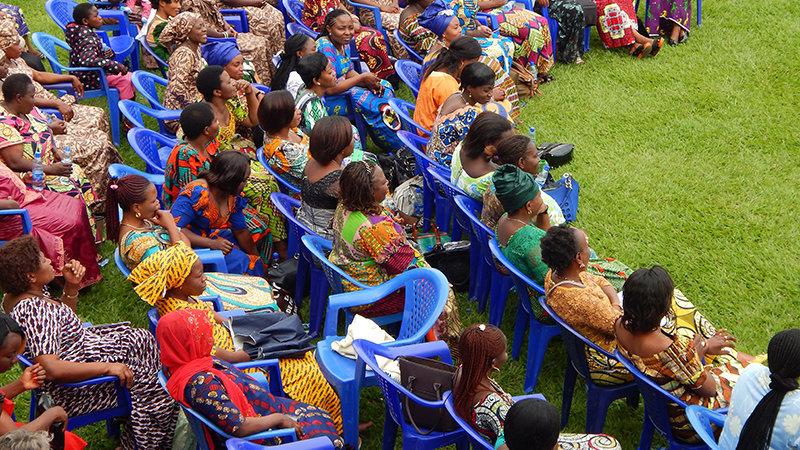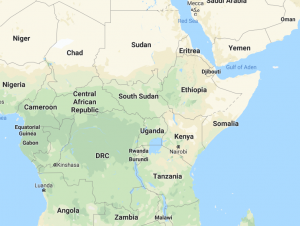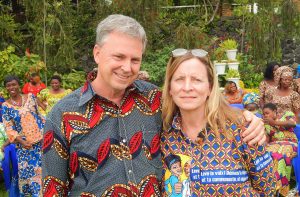
Bill and I have been based in a town called Goma, on the volcanic border between Rwanda and the Democratic Republic of Congo for just over two years now. From here we travel overland and by plane to South Sudan for temporary assignments every other month.

Bill’s work in South Sudan is largely relief-focused: procurement of medicine for health facilities, supervision of mobile clinics in refugee (IDP) camps, etc., while I support schools and literacy programs. But our home and the majority of our work since early 2016 has been in the town of Goma where Bill is working with IMA World Health supporting a team of Congolese doctors, nurses and health specialists who are providing services to victims of sexual violence, sadly endemic in this part of the world (their program has served over 35,000 women and children since the onset). I work with our Congolese partner Heal Africa training teachers and working with local colleagues to provide services to orphans and vulnerable children.
Goma is a beautiful town, situated on picturesque Lake Kivu and surrounded on three sides by tall volcanic peaks. The soil, enriched by volcanic ash over the years, is rich and fertile. The climate at 5,000 feet is relatively cool compared to much of the continent, and the surrounding forests are inhabited by lowland gorillas and too many species of birds to count. In contrast to the geographic splendor lies an insidious evil. Decades of fighting have left hundreds of children abandoned in the streets, a shattered economy, and women with terrifying stories of rape and abuse. In an area overrun with conflict and armed militias, it has been said that “in this part of the world, it is more dangerous to be a woman than a solider”. A UN Ambassador called Goma the ‘rape capital of the world’. Such words, accurate or not, have not dissuaded Congolese women from speaking up and taking back their dignity and control of their lives.

This past month we celebrated “International Women’s Day” in Goma with hundreds of staff, partners, and survivors with whom Bill and I have had the privilege of working these past few years. The events included workshops on promoting women’s leadership and changing harmful cultural norms, as well as times of testimony and prayer … seasoned with precious moments of song, dancing, and fellowship. There was an abundance of tears, of pain, of healing, of kinship, of solidarity, and of joy.
We set out for Africa 25 years ago with the intention of working in schools and hospitals: delivering babies, teaching in classrooms, training and discipling the next generation of young doctors and teachers. Today we are attached to neither hospital nor school. In South Sudan we travel through empty villages, witnessing the scorched-earth policy of ethnic-conflicts while endeavoring to provide services to those displaced in camps or settlements. In the Congo we work with those with labels such as survivor, victim, abandoned, or abused. This is not the life’s work we envisioned doing or necessarily trained for. We have learned, however, that fulfillment comes not so much in ‘doing’ … but rather in ‘being’: being present, being touched, being challenged, and in being changed. We are so thankful for these opportunities we have had to be part of a Kingdom-building venture … and see lives healed and hope restored!
“To all those who have dedicated their lives and careers raising the status of women in our society. Those who have fought for justice and clothed women with dignity, we see you!” — Heal Africa 3/18